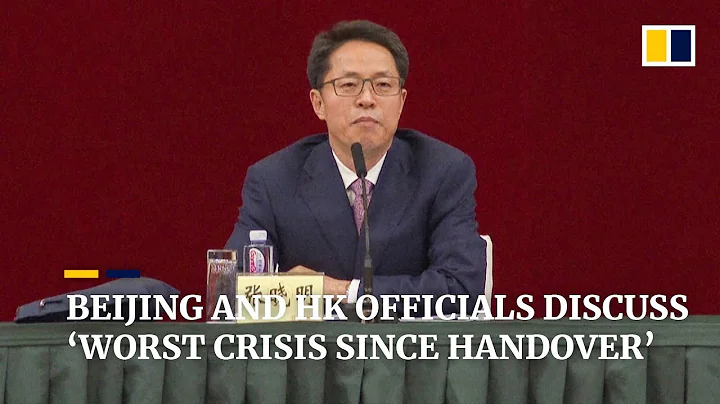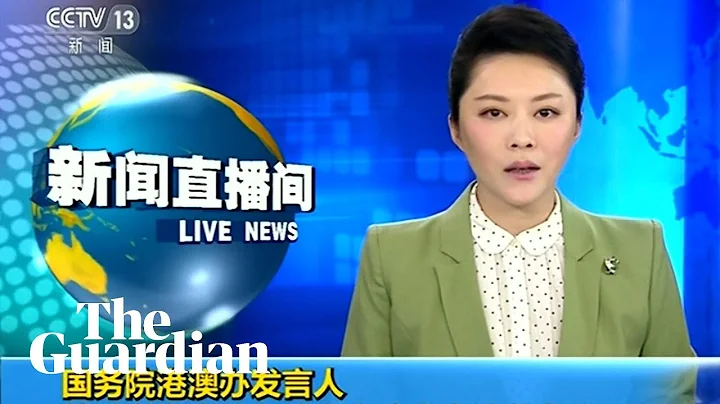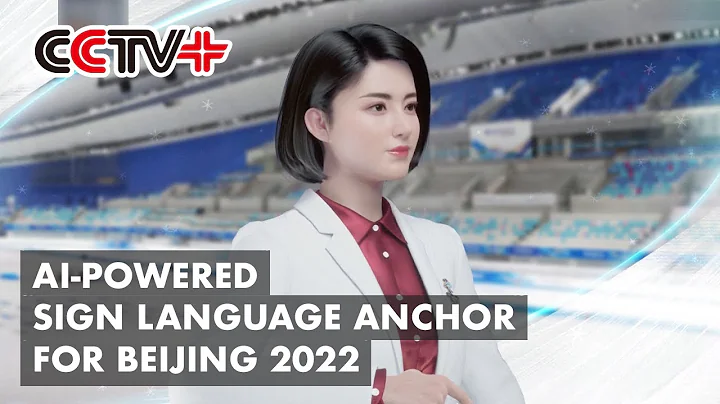
Key Tips
Our reporter Gao Jianghong reported in Beijing
html On March 27, China COSCO (Quote 601919, Consulting) announced the results of its 2014 annual report, with operating income of 64.37 billion yuan, a year-on-year increase of 3.9%, and net profit of 363 million yuan, a year-on-year increase of 53.96%. . However, net profit after excluding non-recurring gains and losses was a loss of 1.382 billion yuan, a year-on-year decrease of 5.8 billion yuan.This is already the best result achieved by China COSCO in recent years. In the past few years, China COSCO has suffered huge losses one after another, and has become the loss leader in the A-share market for several times.
"The situation of the shipping market in 2014 was actually worse than that in 2013." Ma Zehua, chairman of COSCO Group, said in an exclusive interview with 21st Century Business Herald on March 26 that the company's performance improvement was mainly due to the substantial reduction in losses in the main shipping business. At the same time, the sale of relevant asset equity and the receipt of ship scrapping subsidies during the period also increased earnings.
COSCO Group's profits in 2014 were relatively impressive. Ma Zehua revealed to reporters that COSCO Group achieved a total profit of 5.035 billion yuan for the whole year. After excluding one-time gains, it realized a profit of 2.08 billion yuan, with a year-on-year loss reduction and profit increase of 7.448 billion yuan. "We must also see that this is only a phased improvement, and the shipping market situation has not fundamentally changed."
Ma Zehua believes that as China's economy enters a new normal, the integration of internal and external resources will become the normal state of competition and cooperation in the shipping market, and at the same time, enterprises will cross Industry integration will become the industrial norm that promotes shipping development. When reporters asked whether the resource integration would go as far as further mergers and reorganizations with aviation companies such as China Shipping Group, Ma Zehua said that such a reorganization decision was not in the hands of the company.
The new normal of shipping
"21st Century": Regarding this year's economic situation, various industries have very different opinions. Shipping can be regarded as a good indicator to test the economic water temperature. What do you think of the current situation of the entire external economy and the Chinese economy? A situation?
Ma Zehua: The global economy recovered weakly in 2014, but the extent was not as good as expected. The International Monetary Fund (IMF) lowered its global economic growth forecast three times during the year. In January 2015, the IMF once again lowered its global economic growth forecast from 3.8% to 3.5%. The global economy has entered a new normal of slow demand growth and deep structural adjustment. In terms of countries, the U.S. economy continues to improve; although the European economy has improved, the pace of recovery is relatively slow; Japan's economic growth is slightly better than that of the euro zone; emerging economies are increasingly differentiated, and resource-based countries are close to the edge of recession.
China’s economic development has entered a “new normal”. China's economic growth rate was 7.4% in 2014 and is expected to remain stable overall in 2015. At the same time, the pace of economic structural adjustment will further accelerate.
"21st Century": What changes and impacts will this new normal have on shipping? What strategic adjustments do shipping companies need to make for this?
Ma Zehua: I think the shipping market may show several characteristics under the new normal situation.
On the one hand, the integration of internal and external resources will become the norm of competition and cooperation in the shipping market. In recent years, the rise of various alliances and joint ventures also reflects these needs, especially in the container market, where large alliances are constantly emerging; the joint ventures currently formed in the tanker market and general cargo special ship market are also deepening; the dry bulk market is limited to business Characteristically, the pace of the shipowner alliance is relatively slow, but the cooperation between ships and cargoes in the industrial chain is continuing to deepen. In addition, from the perspective of internal resources within the enterprise, centralized control, resource integration, and business collaboration have also become common practices.
Secondly, cross-border integration of enterprises will become the industry norm to promote the development of shipping. As a traditional industry, the relationship in the shipping market has always been relatively simple, and the market division of labor is relatively clear. Shipowners, cargo owners, and brokers can all be separated. However, the current shipping market is far different from the past: one feature is the diversity of market entities. ation, another feature is the diversified role of shipowners. I think there are two most important reasons for the emergence of such a pattern: first, the high prosperity of the industry attracts external capital; second, the promotion of the "whole industry chain development" strategy in recent years has caused more related industries to begin to get involved. Shipping. This pattern of cross-border integration and diversified promotion will continue to be the new normal in the future.
and service model innovation will become the norm in marketing.We all make changes in route design, punctuality, service methods, marketing models, etc., and strive to improve our service quality through innovation.
may have their own methods, but I think the most important thing is to talk about cooperation, make breakthroughs in the depth of cooperation, and gradually transform from single-point cooperation to industrial chain cooperation, and from domestic cooperation to international cooperation. At the same time, we must innovate, make breakthroughs at the innovation level, encourage peers to join forces in innovation, and advocate supporting innovation within the industry. Of course, we must also be rational and exercise restraint in rational expansion and rational development.
"21st Century": You mentioned the integration of internal and external resources. Currently, the country is promoting the integration of resources by many central enterprises. The market has also been looking forward to the merger and reorganization of COSCO and China Shipping. Do you think the current sluggish market conditions will accelerate this merger? progress?
Ma Zehua: We have noticed that there have been further rumors about our cooperation with China Shipping. In fact, we have been cooperating a lot with China Shipping Group. Whether it is container business or anything else, our cooperation is deepening.
The cooperation method to solve the industry's overcapacity and stay together for warmth. In fact, in addition to mergers and reorganizations, there is also the alliance method. The CKYH Alliance, where COSCO Container Lines is located, continues to expand the scope of cooperation. Evergreen Shipping joined the alliance as a new member and changed its name to the CKYHE Alliance. Since mid-April last year, they have jointly operated multiple Asia-Northwest Europe routes and Asia-Mediterranean routes, gradually reflecting the alliance's advantages in service coverage and frequency, single space cost, delivery time and operational efficiency. Since January 1, 2015, the cooperation scope of CKYHE Alliance has been further expanded to the United States.
As for the merger and reorganization issue with China Shipping, you know that this is not something we can decide on our own.
Reforming COSCO
"21st Century": I heard that COSCO asked McKinsey to make a consulting report last year. What were the final suggestions given to COSCO in the report? Will you make internal changes based on the report’s findings? How do you plan to adjust your organizational structure and business structure?
Ma Zehua: Yes, in 2014 we asked McKinsey to review past strategies with us and formulated a new version of COSCO Group’s “2020 Development Strategy”. The core is to “build a customer-centric, world-class integrated global shipping, supply chain, An integrated logistics enterprise that provides marine engineering and oil and gas storage and transportation services.”
2015 is the first year for the implementation of COSCO Group’s new 2020 development strategy. We will adhere to the strategy as the guide and actively promote the implementation of the strategy around the four dimensions determined by the strategy.
In terms of profitability, we must put more emphasis on the innovation of business models and the improvement of value creation capabilities; we must continue to expand business areas and explore new profit growth points; we must continue to deepen the benchmarking management of corporate vertical growth and focus on releasing Make a fuss about innovation vitality.
In terms of resisting cyclicality, we must continue to strengthen the ability of the main shipping industry to withstand market fluctuations, accelerate comprehensive business development, enhance the company's comprehensive competitiveness, and focus on structural adjustment. In terms of globalization,
adheres to the "equal emphasis on both domestic and overseas markets" expansion, solidly promotes COSCO Group's overseas business, increases the expansion of domestic professional companies' overseas business, and intensively cultivates overseas markets. In terms of scale growth,
must adapt to market changes and continuously adjust its scale structure according to corporate strategic development goals to achieve scale growth with speed, quality, and efficiency. Scale growth cannot be a one-sided pursuit of extensional growth oriented to increasing investment. It should be bigger on the basis of becoming stronger and better. The measurement standard of scale should ultimately be based on effective market share and share. Scale growth must also be reflected in innovation-driven and typical leadership, so that new products, new technologies, good experiences and good methods can form productivity as soon as possible. For example, e-commerce business is still in its infancy, and we must continue to support the development of this new business format.
Speaking of structural adjustment, in terms of industrial structure, we will vigorously promote the construction of complementary industries for the group. We will focus on seeking development opportunities in the fields of comprehensive logistics services, financial leasing, etc., increase capital operations, and continue to optimize the internal equity structure.
As for the market structure, we will increase the intensity of "going out" in accordance with the national development strategy and related industrial policies. The shipping sector continues to increase the development of overseas emerging markets, develop cross-regional markets, increase the proportion of supply in third country markets, and gradually work towards the balanced development of China's domestic market and overseas regional markets. The logistics, terminals, and shipbuilding and shipbuilding sectors also continue to look outward and actively seek broad market development space.
As for the fleet structure, we will accelerate the retirement of ships with high emissions that cannot meet market demand, adjust and optimize the fleet structure, and optimize the ship type, green environmental protection, and equipment selection of new ships to meet the needs of future competition.
"21st Century": The reform of state-owned enterprises is also one of the topics that attracts the most attention. Can you know more about the reform trends of COSCO Group?
Ma Zehua: After the Third Plenary Session of the Central Committee of the Communist Party of China, the reform of state-owned enterprises has become the general trend. The Central Economic Work Conference also made it clear that the reform of state-owned enterprises will be one of the main tasks of this year’s economic work. This is the top priority for our group this year and in the years to come. In July last year, COSCO Group established a comprehensive deepening reform leading group headed by me to promote the comprehensive reform and development of the group.
This year, we mainly want to carry out in-depth work in the following aspects: First, we must further improve corporate governance. We must continue to standardize the construction of the board of directors, organize corporate governance structures in accordance with the law, and all governance entities must perform their duties in accordance with regulations.
The second is to further implement the "three capabilities" reform. Adhere to the principle of marketization, and based on enterprise operating efficiency and assessment results, we will truly embody the principle of "increasing performance and increasing salary, decreasing performance and decreasing salary", and deepen the reform of enterprise cadres being able to move up and down, employees being able to come in and out, and income being increased or reduced.
The third is to further improve the management system reform and fuel system reform of overseas institutions.
"21st Century": Will COSCO consider deeper equity structure reform? Many companies are seeking to become state-owned investment companies or state-owned investment operating companies in the new round of state-owned enterprise reform. As an industry leader, does COSCO also have the potential to become an investment platform?
Ma Zehua: In recent years, we have made many explorations and attempts in institutional reform. For example, at the end of 2010, we carried out institutional reforms in our bulk cargo transportation business. Judging from the current implementation results, the reforms are still effective. The overall structure is more reasonable, the scale advantage is further strengthened, and business synergies gradually emerge.
For another example, we have accumulated many years of practical experience in mixed ownership. At present, it has controlled 5 listed companies at home and abroad, China COSCO, COSCO Pacific (Quote 601099, Consultation), COSCO International, COSCO Investment, and COSCO Shipping (Quote 600428, Consultation), and participated in CIMC Group (Quote 000039, Consultation), Investment Promotion There are three listed companies including the bank (quote 600036, consultation) and China Merchants Securities (quote 600999, consultation). In the future, we will also promote the reorganization and integration of the company's business and optimize the industrial structure based on the actual internal situation of the company and changes in the external market.
As for the issue of state-owned investment and operation platforms in the industries you mentioned, as an enterprise, we are not in a position to comment. We will base ourselves on ourselves and do our own thing well.
"21st Century": The country is implementing the "One Road, One Belt" strategy. What opportunities will this strategy bring to shipping companies, especially COSCO Group?
Ma Zehua: "One Belt and One Road", especially the Maritime Silk Road, is closely related to our business. The infrastructure construction needs and logistics transportation needs brought about by its development have provided opportunities for our terminals, logistics warehousing and transportation businesses. . In accordance with the layout of the national “Belt and Road” strategy, combined with our own strategic development needs, we will rely on the laying of container routes and investment in overseas hub ports and terminals, and follow up in a timely manner with logistics, ship repair and building and other businesses, and fully promote the countries along the “Belt and Road” and regional market development, gradually forming several regional operation and distribution centers. At the same time, it promotes the integration of internal and external resources, relies on and connects each other, drives the comprehensive development of business in the region and radiates outward, gradually forming a ribbon connection. On the one hand, it promotes the economic development of countries along the route and trade between countries, and on the other hand, it is also beneficial to our own business development.





















